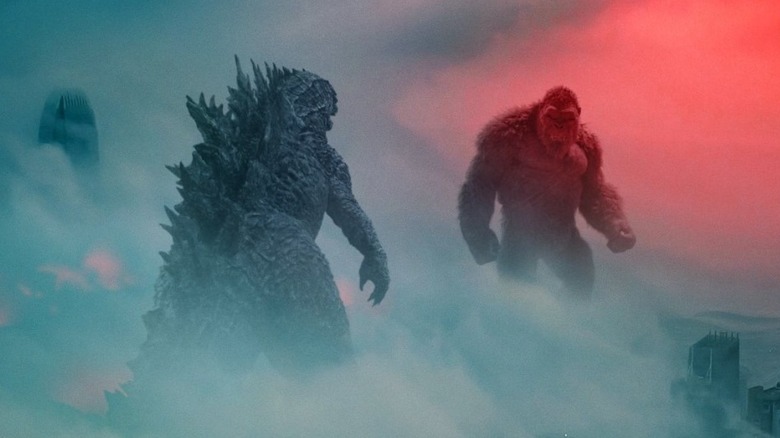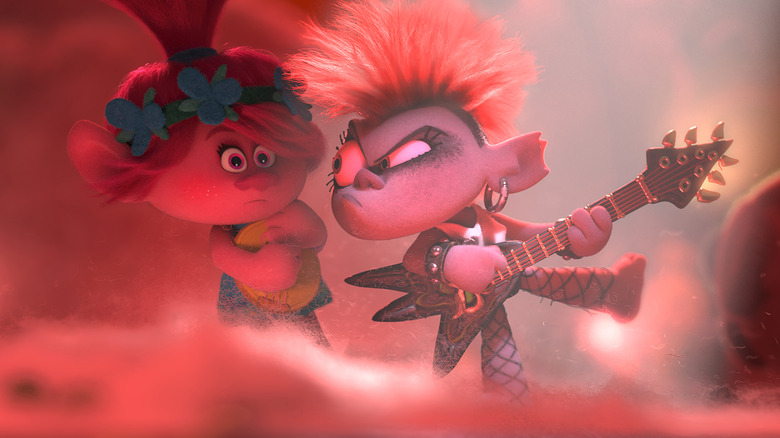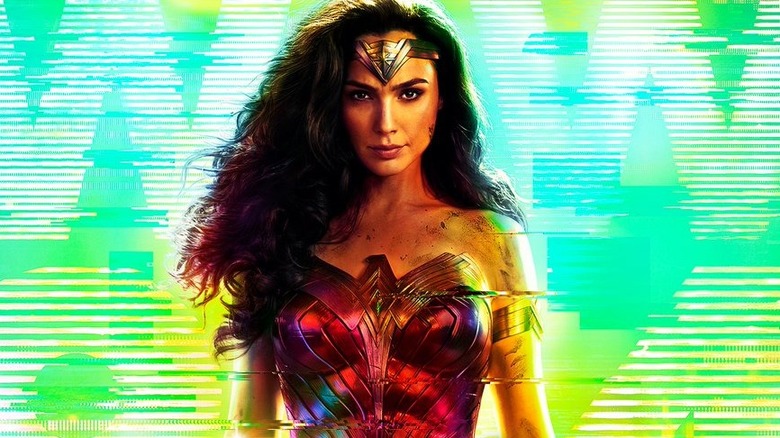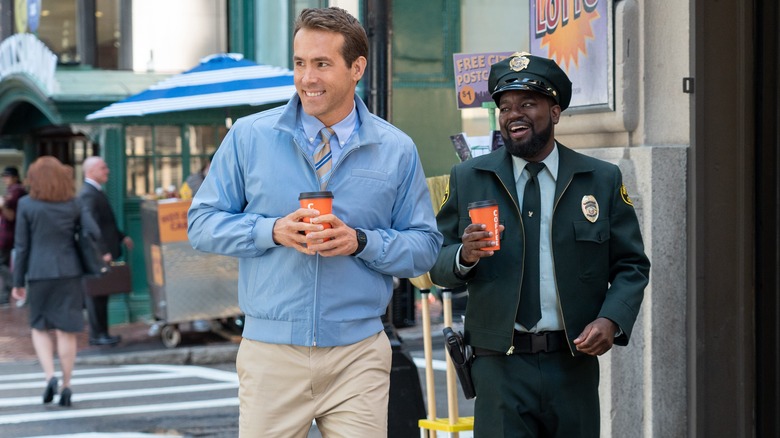
2020 will go down in history for so many reasons, and while there were, unquestionably, bigger fish for the world to fry, there is no denying that COVID changed the movie business forever. Long gone are the days of a big movie enjoying a nearly three-month-long exclusive theatrical window before being made available on home video. The inevitable, eventual shift to a streaming-first mentality was giving a gigantic shove and is now the way seemingly every studio in Hollywood is thinking. Hollywood is a different place than it was even just a year ago.
But as we slowly emerge from the pandemic into something that resembles normalcy, questions must be asked about the new normal. What will that look like? At the center of this question are two different methods of distribution for new movies that both offer pros and cons, depending on the type of movie being released. There are movies that enjoy an exclusive theatrical release for a set period of time before being released elsewhere, be it on some form of streaming and/or home video, and a hybrid, aka day-and-date release, where a movie is made available both in theaters and via streaming on the same day.
Let's go over a bit of recent history, look at what lessons we've learned from the box office this year, and take a speculative look at the future. We'll be focusing particularly on larger blockbuster movies and what might be the best path forward for those movies to remain sustainable in this new Hollywood ecosystem.
Trolls: World Tour Changed Hollywood Forever

March 17, 2020, is a date that will go down in Hollywood history. Just as COVID was truly sinking its teeth into the United States, back when none of us truly knew how long this was all going to last, Universal Pictures did the previously unthinkable. With movie theaters effectively shut down due to quarantine, the studio revealed that it planned to release its sequel "Trolls: World Tour" both in theaters and as a digital rental on the same day. The catch? That rental price was set at $19.99, far higher than the usual digital rental price. Thus, premium VOD was born.
A year and a half later, this seems like no big deal. A movie is released and, be it on the same day or a handful of weeks later, it's available to rent from the comfort of home for between $20 and $30 bucks. Be that as it may, the audacious nature of this move, at the time, cannot be overstated. Studios and movie theaters had a tenuous relationship ahead of the pandemic. Studios wanted shorter, exclusive theatrical windows. Theaters didn't, as they feared cutting a movie's run short would eat into its box office potential. Premium VOD had been floated as a nebulous idea, but no studio dare try it in practice, especially with a movie that seemed like a surefire hit. But Universal did, and they were the ones to open the floodgates.
In the end, "Trolls: World Tour," between its box office (just shy of $50 million), home video sales (reportedly just above $50 million), and more than $100 million from rentals, was a success. Whether or not it was the model for success remains a topic for debate, which we'll get into momentarily. But this is the watershed moment that ultimately opens the door for the conversation about the future of distribution.
The Change Came Swiftly

After that, Pandora's Box was open. It could not simply be closed again. Studios began sifting through the movies they had sitting, collecting dust, and releasing what they could, be it as an exclusively digital release, or as a hybrid release, collecting what little box office was available, as well as premium VOD money. There were successes and failures along the way but, ultimately, a new method of distribution was born. And it also gave a massive edge to streaming which, thanks to Netflix and every other streaming service entering the streaming wars, had already been taking over Hollywood.
Even as we entered 2021 with new hope, Warner Bros. affirmed to the world at large that things were never going to be the same. After "Wonder Woman 1984" was released both in theaters and on HBO Max to mixed results, the studio announced it would release every single one of its 2021 movies the same way, at least in the U.S. What's more, the movies would be free of charge to subscribers. No premium VOD here, just brand new releases that were originally intended as theatrical releases, free to stream for millions, pissing off A-listers all across Hollywood in the process. Disney and other studios experimented in their own ways as the box office proved to be unstable. Now, we'll look at the winners and losers from both camps; the exclusive theatrical releases and the hybrid releases.
The Winners From Both Camps

We're not going to go over every single movie released in 2021. However, we are going to take a look at some of the biggest winners, overall, just to give a sense of what worked and, in a larger sense, try to figure out why it worked, regardless of the release strategy. Defining a winner is simple; did the movie, relative to its budget and other associated costs, make money? Let's have a look at some examples.
Let's start with "F9," aka "Fast and Furious 9." Universal's latest entry in its Fast Saga earned $173 million domestic and $543.5 million internationally for a total of $716.5 million worldwide. It was released exclusively in theaters and, as it stands, is the second-biggest movie of the year, beyond only China's monster blockbuster "Hi, Mom" ($822 million).
Next, we have "Godzilla vs. Kong." Released both in theaters and on HBO Max in the U.S. on the same day, it made $100.5 million domestic and $367.3 million overseas. That $467.8 million total is far better than 2019's "Godzilla: King of the Monsters" ($386.6 million). Which, it's worth pointing out, was not contending with a global pandemic. A win without question.
The Marvel brand is strong. "Shang-Chi and the Legend of the Ten Rings" proved that, taking in $386.9 million to date with an exclusive theatrical release. It shattered the record for a Labor Day weekend opening and is poised to pass $400 million worldwide, without a release in China. Not bad for a movie based on a character few people in the mainstream had heard of previously.
In a win for original properties, Ryan Reynolds' "Free Guy" has earned $321 million globally, working from a reasonable (relatively speaking) $100 million budget. Disney is already working on a sequel, signaling that the returns are good. Again, this was an exclusive theatrical release, and one that the Mouse House inherited as part of its huge buyout of Fox.
Lastly, we just want to say that horror wins here. No matter what, seemingly. "A Quiet Place Part II," released exclusively in theaters, earned $297.3 million worldwide, besting the original. "The Conjuring: The Devil Made Me Do It," released both in theaters and on HBO Max, made $201.9 million worldwide. "The Forever Purge," exclusively released in theaters, grossed $76 million worldwide from a relatively tiny budget, all but ensures the franchise will live on for a sixth entry. "Candyman," "Don't Breathe 2," and "Escape Room: Tournament of Champions" also did relatively well. Horror is the backbone of Hollywood. It is now and has almost always been true.
The Losers From Both Camps

As for the losers, let's be clear that this is not a commentary on the movies themselves -- we are merely looking at performance, regardless of the distribution method.
For starters, Disney and Marvel's "Black Widow." Yes, by pandemic standards, $378.8 million worldwide is good. But for an MCU movie based on a character who has been a part of this universe for a decade? That is well short of expectations, especially considering that "Shang-Chi'' has already surpassed that mark. Of note, Disney did opt to release the movie on Disney+ Premier Access on the same day it hit theaters, which certainly hurt its long-term box office earnings potential, as evidenced by its massive drop from week one to week two.
Sticking in the superhero world, DC's "The Suicide Squad" may go down as the flop of the year, which is a real shame because director James Gunn made one heck of a great movie. Despite that, with a $185 million budget, it earned just $167.3 million worldwide. It doesn't matter how many people watched it on HBO Max, the movie lost a lot of money for Warner Bros. No two ways about it.
Ryan Reynolds had a hit this year with "Free Guy," but he also had a misfire with "Hitman's Wife's Bodyguard." The sequel to the surprise hit "The Hitman's Bodyguard" earned just $70.3 million with an exclusive theatrical release. In the long run, it may be able to make its money back, but it's a disappointing result for a sequel to a hit movie with star power in the form of Samuel L. Jackson, Salma Hayek, and more.
One of the biggest disappointments of the year so far is "In the Heights." The movie adaptation of Lin-Manuel Miranda's hit musical of the same name was met with widespread critical acclaim. Released both in theaters and on HBO Max on the same day, it fell flat, taking in just $43 million worldwide. No doubt about it, this feels like a movie that should have done "La La Land" numbers.
Last, but certainly not least, we have "Snake Eyes." You'd be forgiven for forgetting that a "G.I. Joe" movie starring Henry Golding was released exclusively in theaters earlier this year, but it was -- and it was not pretty. Paramount Pictures' attempted reboot of the franchise, which was produced for a reported $88 million, took in just $36.9 million worldwide. In a word? Ouch.
What The Numbers Tell Us

So, what do the numbers tell us? Well, some of this is subjective and these selected movies don't paint the whole picture. That, and we don't quite know what the future holds. Various studios have already agreed to exclusive theatrical windows with exhibitors. Disney has reorganized its structure to seemingly prioritize Disney+. Everyone, except for Sony and a couple of stragglers, is betting big on a major streaming service. It's the wild west.
That having been said, the numbers indicate that it is hard to argue against an exclusive theatrical release for big movies that have a major hook for general moviegoers. "Black Widow" probably would have made more than "Shang-Chi" if they were released on even terms, even if Scarlett Johansson's solo MCU flick didn't get quite as strong of a response, critically speaking. "Godzilla vs. Kong" made more than 78 percent of its money internationally. Might it have fared even better with an exclusive release in theaters? "The Conjuring: The Devil Made Me Do It" similarly made its hay from international markets.
"Snake Eyes" seemingly flopped because it wasn't the right play for that particular franchise, and the response wasn't good. There was a supply and demand issue in that Paramount was supplying something people didn't seem to want. That flop can't be blamed on its release strategy. Though the same can be said for "The Suicide Squad," which is more of a signal of Hollywood's budget problem, something I dove deep on recently elsewhere.
The future is geared towards streaming, there is no fighting that. Premium VOD is a new revenue stream that is here to stay, and that can be a good thing. Hybrid releases aren't going away, and they shouldn't, as the right movies can seemingly benefit from them. But big, blockbuster movies, that the industry relies on, that movie theaters depend on, will continue to benefit most from getting exclusive theatrical releases in the future.
Read this next: 13 Box Office Bombs That Are Truly Worth A Watch
The post Theatrical Exclusivity vs Hybrid Releases: The Future of Big Movies appeared first on /Film.
0 Commentaires